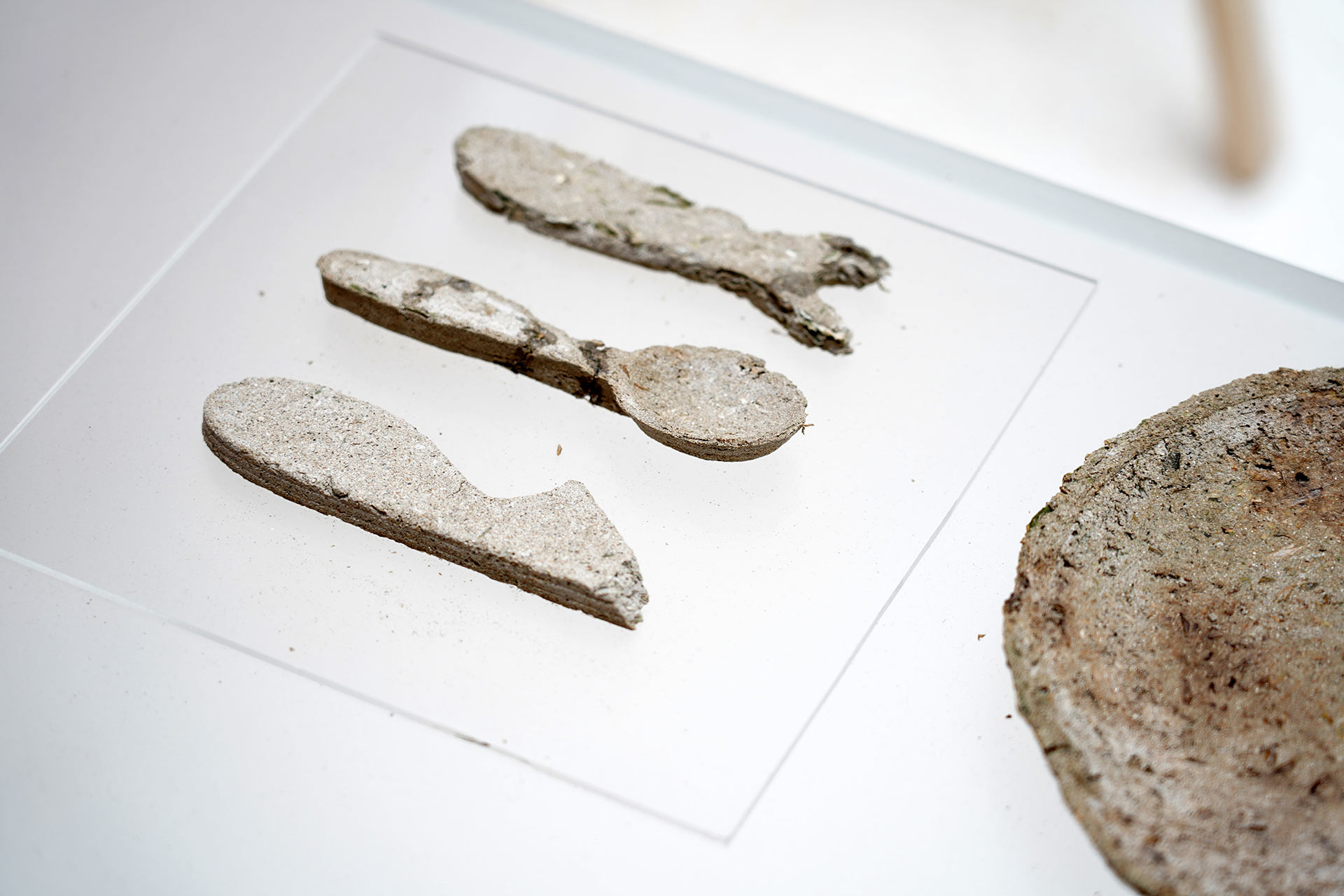 F.001
F.001
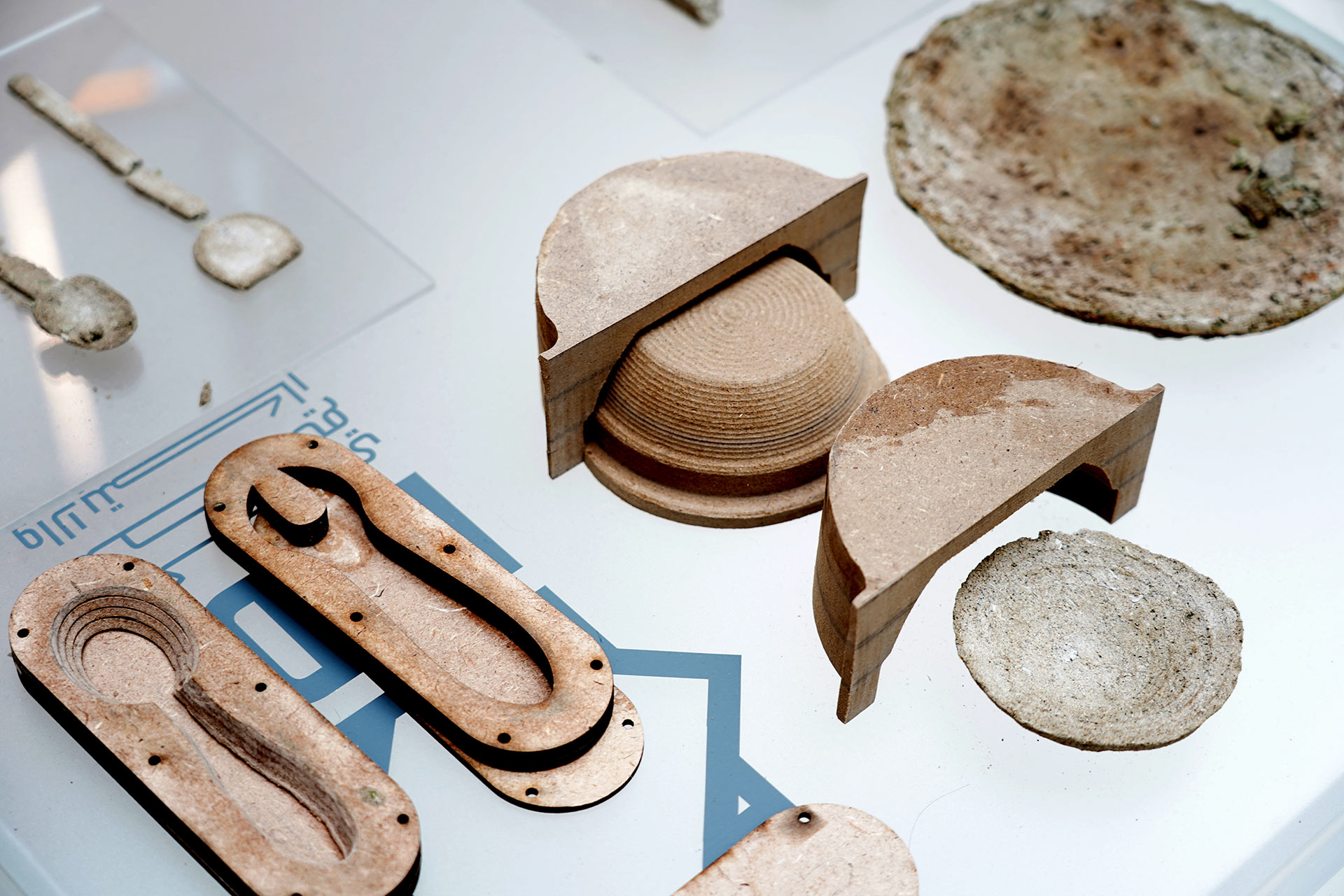 F.004
F.004
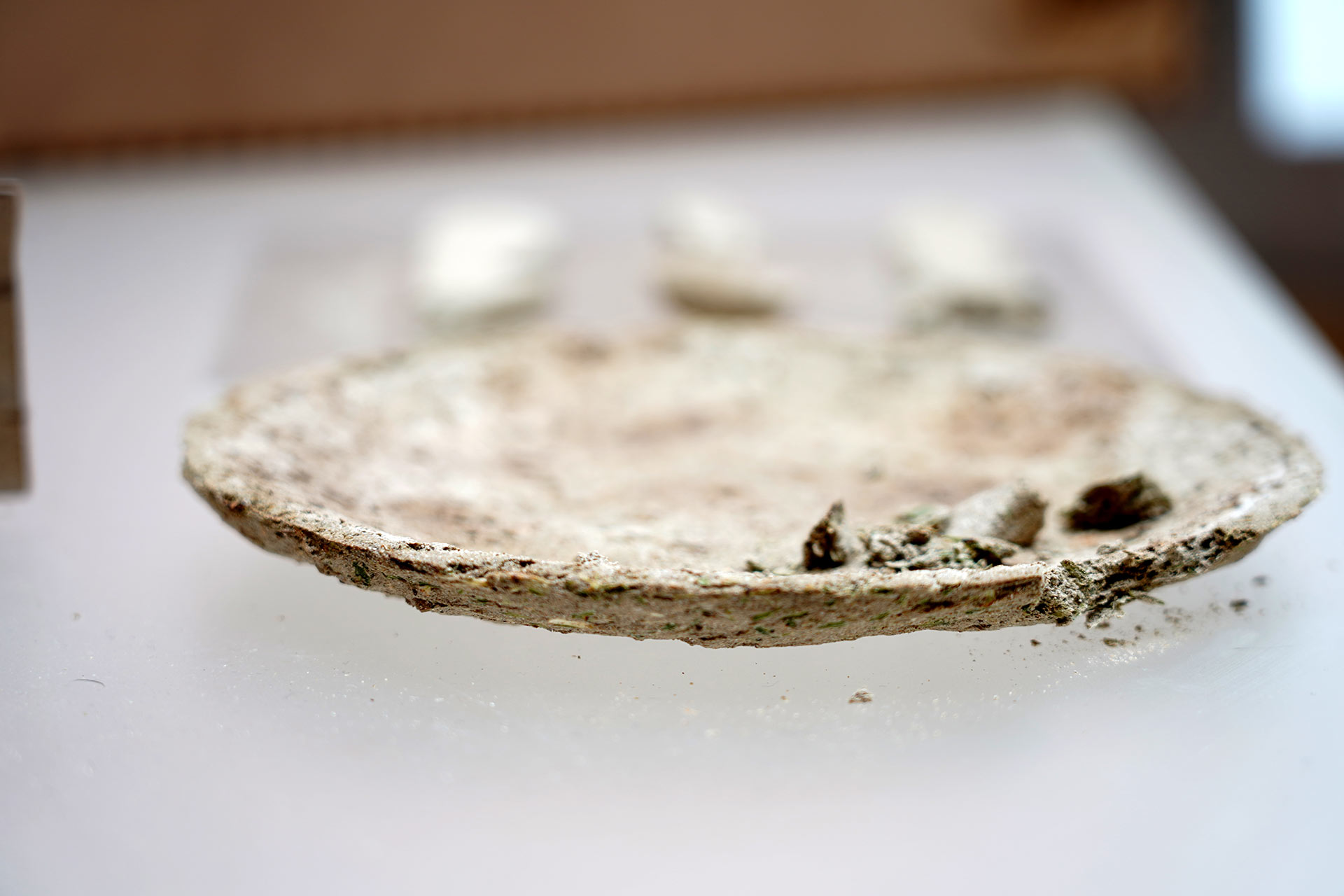 F.003
F.003
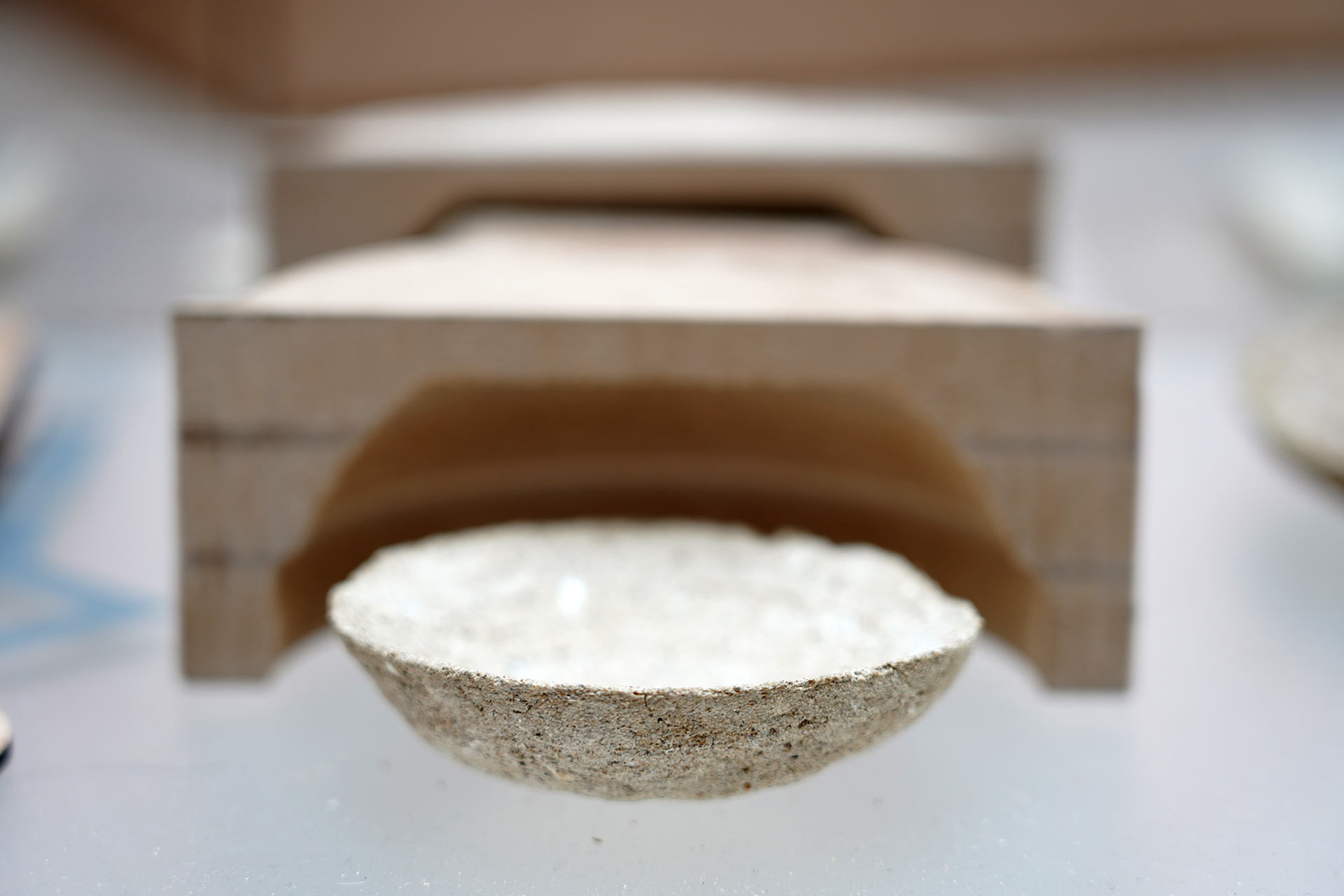 F.002
F.002
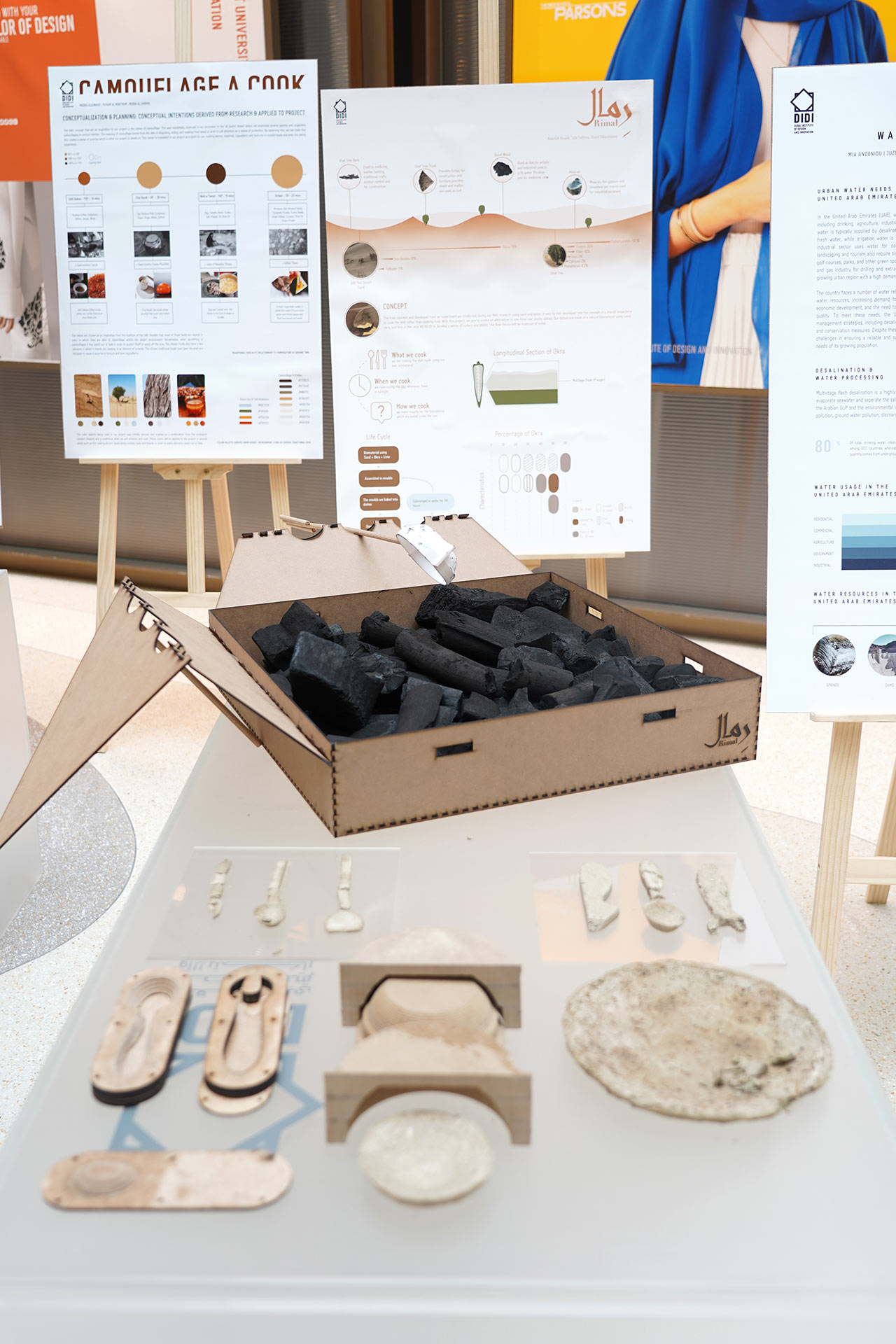 F.006
F.006
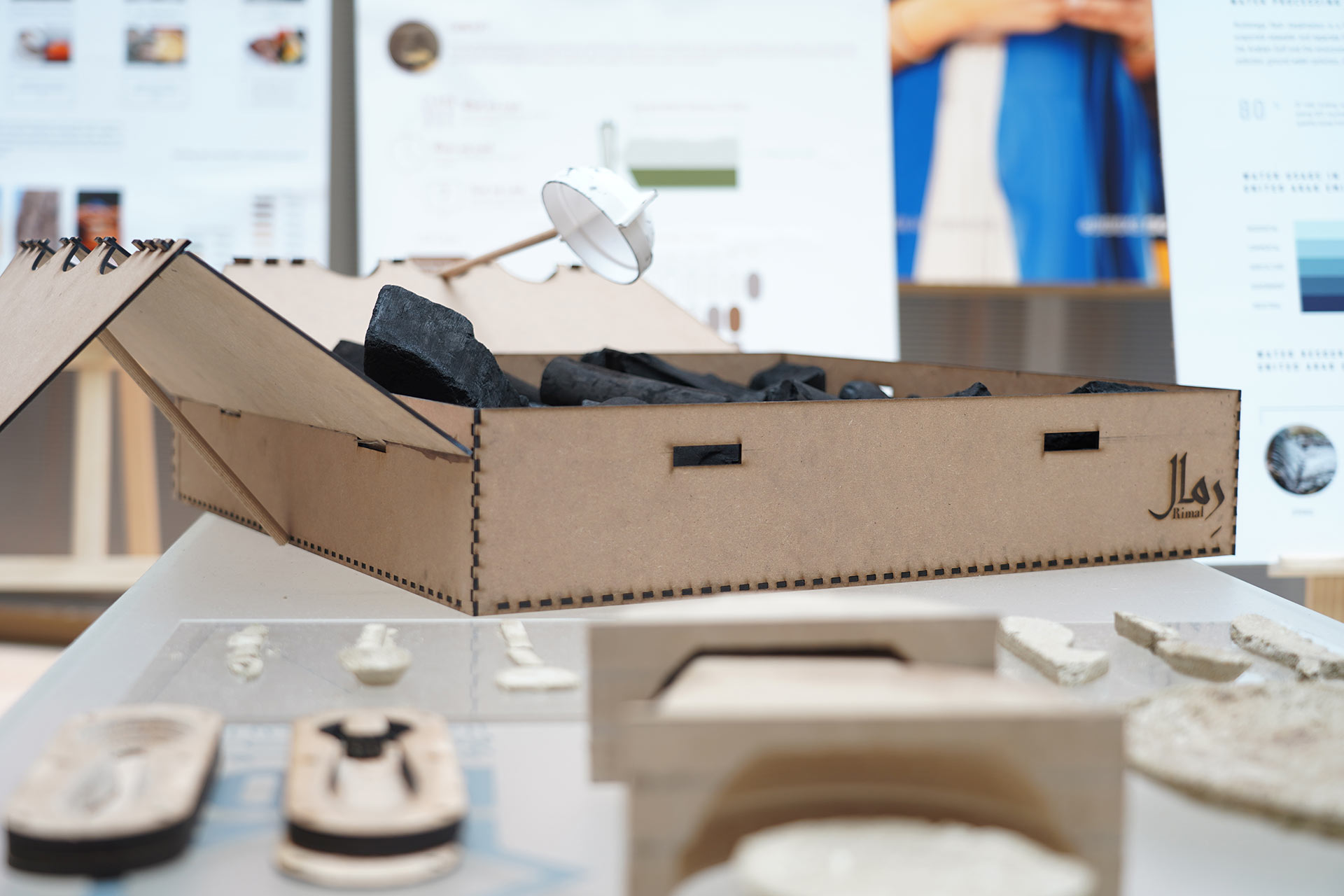 F.005
F.005
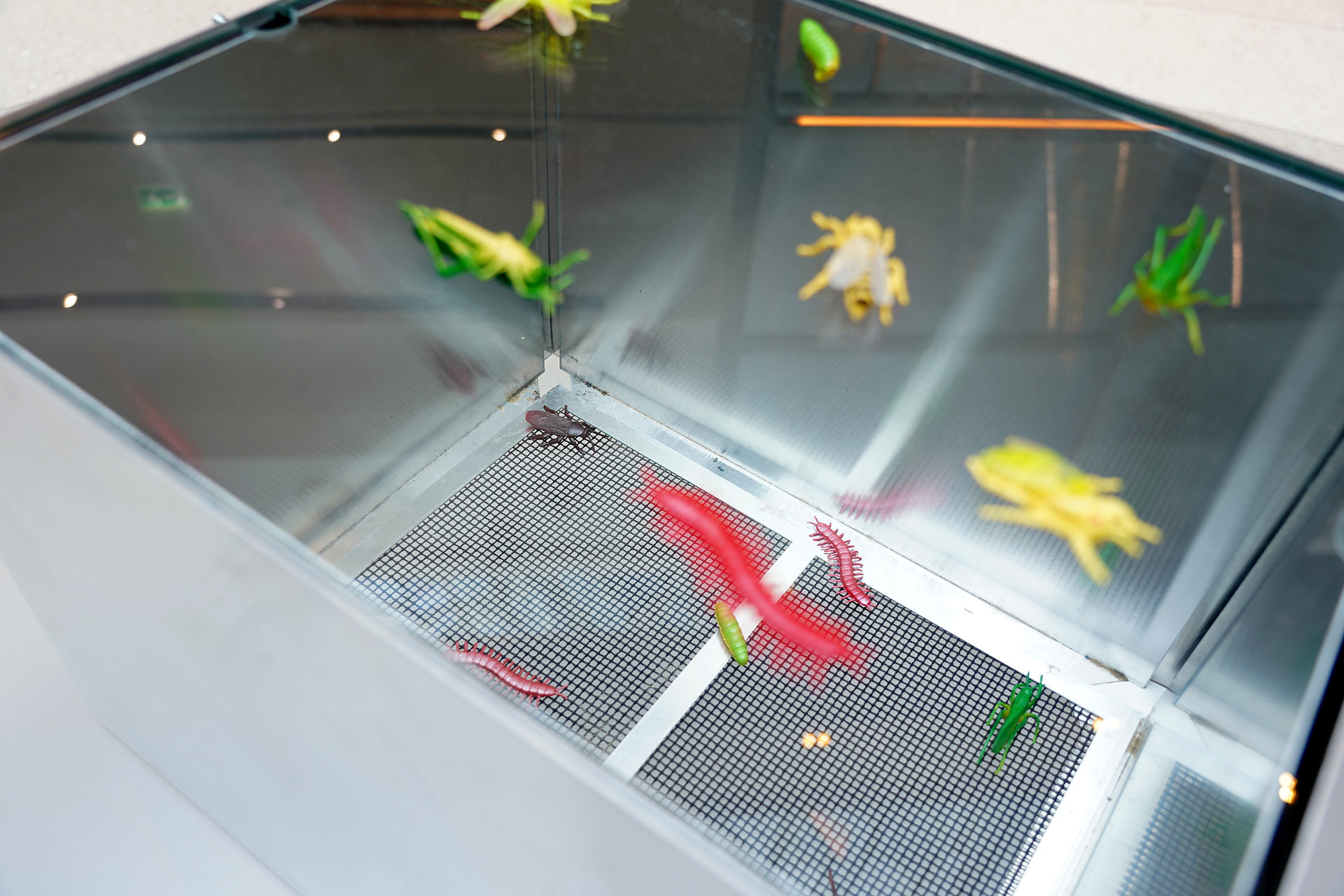 F.011
F.011
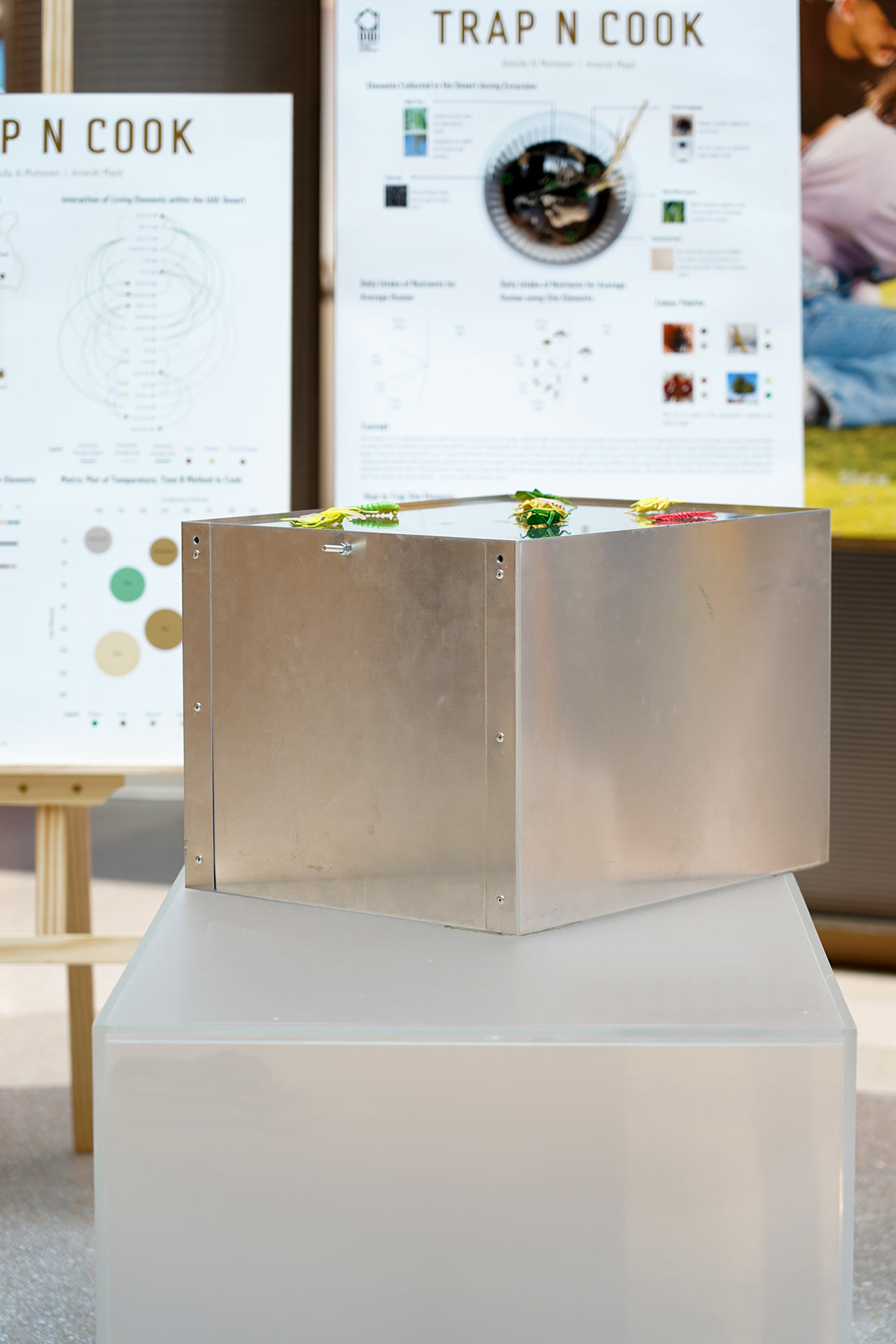 F.010
F.010
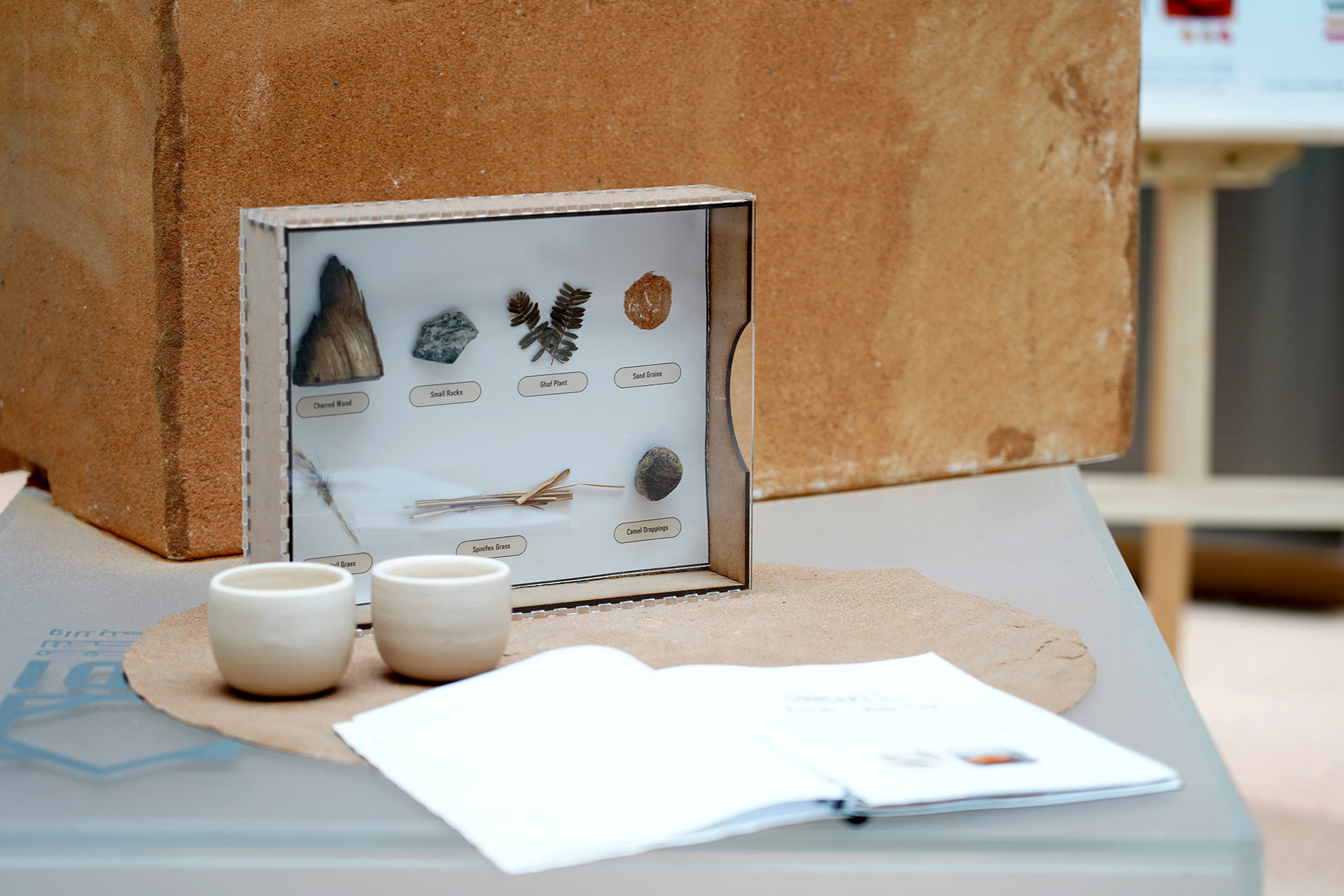 F.009
F.009
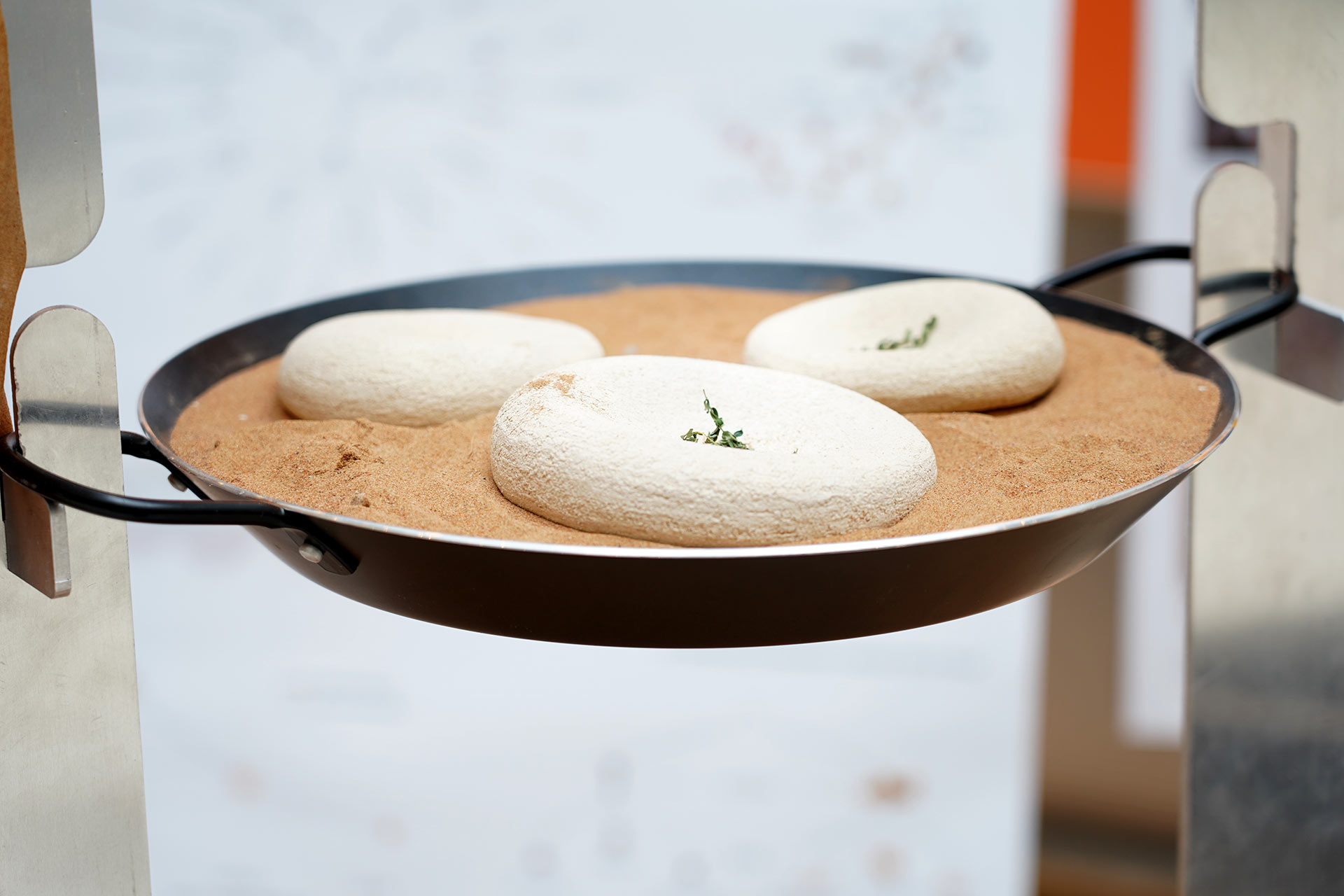 F.008
F.008
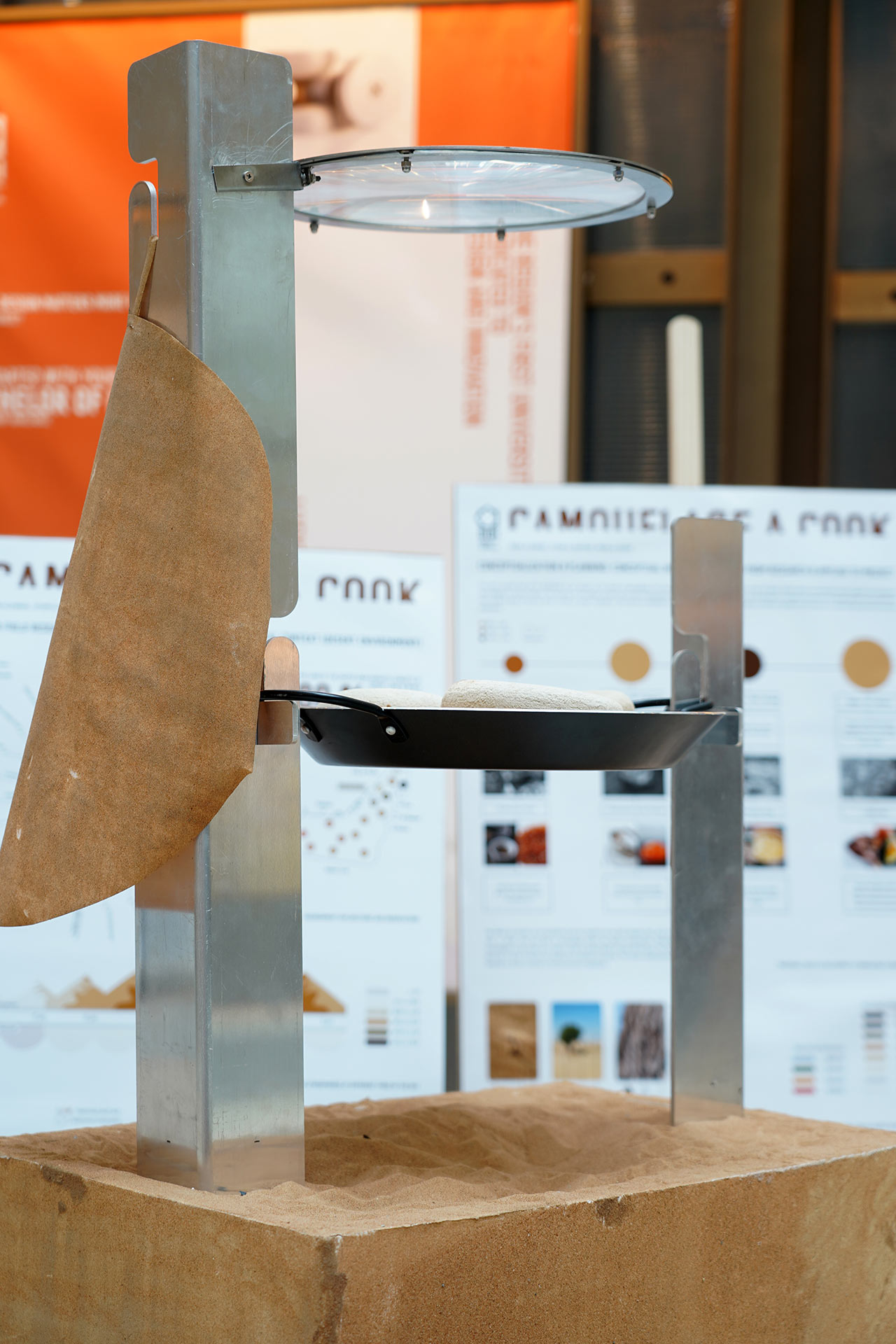 F.007
F.007
E.006
Solar Futures
We do not seek partiality for its own sake, but for the sake of the connections and unexpected openings situated knowledges make possible. The only way to find a larger vision is to be somewhere in particular. Donna Haraway
Words
Preface
The course immersed students in the liminal space between materials, production processes, and the ecological and sociocultural contexts in which they exist or take place. Students were encouraged to venture beyond traditional workshop and studio environments, engaging directly with a real-world context and conditions. Integrating knowledge from human-centered design and more-than-human theory through fieldwork at Dubai’s Al Qudra desert, and hands-on activities at the school’s Fab Lab, the course enquiries about ways to explore local resources and adaptation practices. Students were challenged to design portable, solar-powered cooking systems, tools, and food recipes, culminating in collaborative projects. Ultimately, the outputs reflect principles of regenerative design and co-design, promoting exploratory, circular solutions that address resource scarcity, biodiversity loss, and climate change while fostering resilient and inclusive development.
Format and Methodology
The course had the format of a 16-weeks workshop, and employed sensory ethnography methods to document environmental and cultural dynamics by means of multisensory observations, mapping, and interactive fieldwork. Mapping techniques helped visualize relationships between place, experience, and community. In the prototyping phase, students refined their cooking devices and tools through iterative model-making, employing multiple fabrication methods. Students experimented with processes of reflective thinking and learning, incorporating feedback exchanges between students and professors, fostering critical engagement with design methodologies and local materiality.
– – –
Outputs
Rimal (F.001 to F.006)
Rimal began with research on desert sand permeability, which inspired a culinary experience that reimagines sand as an actual ingredient. It uses a controlled mix of sand, okra, and lime to create a mouldable paste for crafting cutlery and plates. Iterative tests assessed functional and aesthetic qualities while sand samples from various locations highlighted unique geographical attributes. The accompanying kit—with laser-cut stencils, wooden sticks, and a portable metal oven—facilitates sustainable production, emphasizing the use of local resources and a redefined approach to materiality and design.
Trap N Cook (F.010 to F.011)
Inspired by the notion of Cultural Probe, Trap N Cook began as an exploration of possible ‘environmental probes’ capable of providing ecological information from a desert site. Students designed collection devices – using shoeboxes and modified water bottles, to attract and study endemic insects, vegetation, and abiotic elements. This fieldwork informed research on human nutrition, integrating insights about local plants and animals with desert ecology. The probes eventually evolved into functional cooking devices that would partially utilized some of the captured entities. The design was later refined into a metal box with a reflective lid to enhance heating, functioning similarly to a kitchen oven.
Cooking with sand (F.007 to F.009)
Cooking with Sand explores the intersection of environmental data and cultural traditions through socio-environmental sensing. Inspired by Bedouin cooking methods that use desert sand as a heat source, students investigated sand’s physical and cultural properties. Fieldwork involved studying sand colour variations, mapping temperature differences, and identifying optimal cooking conditions. The project resulted in a series of recipes inspired by traditional Bedouin dishes and the design of a portable cooking device. The final design features a Fresnel lens, which concentrates sunlight onto a central pot of sand, distributing heat to smaller clay pots containing food. The project highlights the potential of local materials for sustainable, culturally-rooted cooking solutions.
Team
Teacher:
Gionata Gatto, Andrea Macruz, Mirko Daneluzzo
Lab Instructors:
Mona Al Hashimi
Photography
Gionata Gatto
Exhibitions
20.05.2024 - 30.06.2024
Solar Futures, Dubai Design District, Building 4 (UAE)
Press
Would you like to receive press materials about this project? Enter your email here
